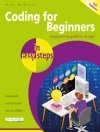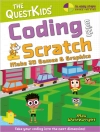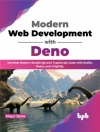We are living in a world where complexity of systems created and studied by people grows beyond all imaginable limits. Computers, their software and their networks are among the most complicated systems of our time. Science is the only efficient tool for dealing with this overwhelming complexity. One of the methodologies developed in science is the axiomatic approach. It proved to be very powerful in mathematics. In this book, the authors developed further an axiomatic approach in computer science initiated by Floyd, Manna, Blum and other researchers. In the traditional constructive setting, different classes of algorithms (programs, processes or automata) are studied separately, with some indication of relations between these classes. In such a way, the constructive approach gave birth to the theory of Turing machines, theory of partial recursive functions, theory of finite automata, and other theories of constructive models of algorithms. The axiomatic context allows one to research collections of classes of algorithms, automata, and processes. These classes are united in a collection by common properties in a form of axioms. As a result, axiomatic approach goes higher in the hierarchy of computer and network models, reducing in such a way complexity of their study.
Mark Burgin
Measuring Power of Algorithms, Computer Programs and Information Automata [PDF ebook]
Measuring Power of Algorithms, Computer Programs and Information Automata [PDF ebook]
Buy this ebook and get 1 more FREE!
Format PDF ● Pages 359 ● ISBN 9781536112573 ● Editor Mark Burgin ● Publisher Nova Science Publishers ● Published 2017 ● Downloadable 3 times ● Currency EUR ● ID 7216597 ● Copy protection Adobe DRM
Requires a DRM capable ebook reader












